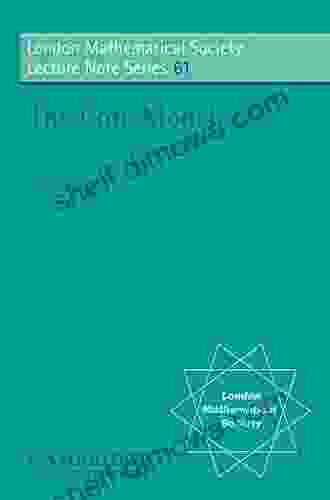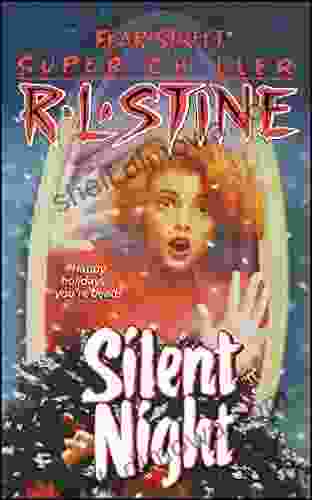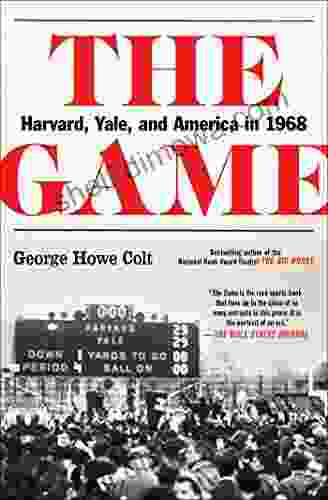Models and Computability: Exploring the Foundations of Computer Science

In the realm of computer science, there lies a fundamental question: what can be computed? At the heart of this inquiry lies the concept of models and computability, which form the cornerstone of understanding the capabilities and limitations of computers.
Introducing Models and Computability
Models and computability are closely intertwined concepts that provide a framework for studying the behavior of computational systems. A model, in this context, represents an abstract description of a system that captures its essential characteristics. By analyzing models, computer scientists can gain insights into the system's behavior without having to build or test the actual system.
4.7 out of 5
| Language | : | English |
| File size | : | 56414 KB |
| Screen Reader | : | Supported |
| Print length | : | 496 pages |
Computability, on the other hand, refers to the ability of a system to perform computations. A system is said to be computable if there exists a model that can simulate its behavior. The study of computability investigates the limits of what can be computed, providing a deep understanding of the fundamental nature of computation.
The Importance of Models and Computability
Models and computability are foundational concepts in computer science that have far-reaching implications. They play a crucial role in:
- Understanding Computation: Models and computability provide a precise and rigorous framework for understanding how computers work and what they can achieve.
- Designing Computers: The principles of models and computability guide the design of new computer architectures and programming languages, ensuring their correctness and efficiency.
- Analyzing Algorithms: Models and computability allow computer scientists to analyze the complexity and efficiency of algorithms, predicting their behavior and optimizing their performance.
- Artificial Intelligence: The study of models and computability underpins the development of artificial intelligence systems, enabling them to solve complex problems and learn from data.
Delving into the Book: Models and Computability
The book "Models and Computability" by John Rogers and Jeremy Setti is a comprehensive guide to this fascinating field. Published as Lecture Note 259 in the London Mathematical Society Lecture Note Series, this book offers a rigorous and insightful treatment of models and computability, catering to computer science students, researchers, and professionals alike.
Key Features of the Book
- Comprehensive Coverage: The book covers a wide range of topics, from basic set theory to advanced concepts in computability theory.
- Rigorous and Accessible: While providing a thorough treatment of the subject matter, the book maintains a clear and accessible writing style, making it suitable for both students and experienced readers.
- Extensive Examples and Exercises: Numerous examples and exercises are included throughout the book, reinforcing the concepts discussed and fostering deeper understanding.
Explore the Chapters of the Book
The book is divided into 10 chapters, each delving into a different aspect of models and computability:
- : A concise overview of the main concepts and themes of the book.
- Set Theory: The fundamental concepts of set theory, essential for understanding the mathematical foundations of computability.
- Functions and Relations: An exploration of functions and relations, including their properties and applications in computability theory.
- Computability Theory: The core concepts of computability theory, such as Church-Turing thesis, Turing machines, and recursive functions.
- Computable Structures: An investigation into computable structures, including computable sets, computable functions, and computable relations.
- Recursion Theory: A study of recursion theory, including Kleene's recursion theorem and its applications.
- Computable Real Numbers: An examination of computable real numbers, their representation, and their properties.
- Computability in Computable Structures: An analysis of computability within computable structures, exploring concepts such as computable predicates and computable operations.
- Applications of Computability: A discussion of the applications of computability theory, including its role in logic, set theory, and algebra.
- Further Topics in Computability: An overview of advanced topics in computability, such as Scott domains and the connections between computability and topology.
"Models and Computability" by John Rogers and Jeremy Setti is an invaluable resource for anyone seeking a comprehensive and rigorous understanding of models and computability. Through its clear explanations, extensive examples, and in-depth coverage, this book provides a solid foundation for further exploration in the field of computer science.
Whether you are a student aspiring to master the fundamentals of computability or a seasoned researcher delving into advanced topics, "Models and Computability" is an essential addition to your library. Its insights will empower you to navigate the complexities of computation, design more efficient algorithms, and contribute to the ongoing quest to unravel the mysteries of computability.
4.7 out of 5
| Language | : | English |
| File size | : | 56414 KB |
| Screen Reader | : | Supported |
| Print length | : | 496 pages |
Do you want to contribute by writing guest posts on this blog?
Please contact us and send us a resume of previous articles that you have written.
 Book
Book Novel
Novel Page
Page Chapter
Chapter Text
Text Story
Story Genre
Genre Reader
Reader Library
Library Paperback
Paperback E-book
E-book Magazine
Magazine Newspaper
Newspaper Paragraph
Paragraph Sentence
Sentence Bookmark
Bookmark Shelf
Shelf Glossary
Glossary Bibliography
Bibliography Foreword
Foreword Preface
Preface Synopsis
Synopsis Annotation
Annotation Footnote
Footnote Manuscript
Manuscript Scroll
Scroll Codex
Codex Tome
Tome Bestseller
Bestseller Classics
Classics Library card
Library card Narrative
Narrative Biography
Biography Autobiography
Autobiography Memoir
Memoir Reference
Reference Encyclopedia
Encyclopedia Godfrey Aguwa Jr
Godfrey Aguwa Jr Rod Powers
Rod Powers Germund Mielke
Germund Mielke Gerald E Marsh
Gerald E Marsh Robert Ridgway
Robert Ridgway Geoff Miller
Geoff Miller Geoff Drake
Geoff Drake Gisela Ernst Slavit
Gisela Ernst Slavit Tiler Peck
Tiler Peck Lisa Tawn Bergren
Lisa Tawn Bergren Wayne Lynch
Wayne Lynch Heather Lehr Wagner
Heather Lehr Wagner George Monbiot
George Monbiot Genevieve Stebbins
Genevieve Stebbins Maria Leonard Olsen
Maria Leonard Olsen Kenneth Brantingham
Kenneth Brantingham Martina Sprague
Martina Sprague George Howe Colt
George Howe Colt Gary K Griffith
Gary K Griffith Lubomir Tkacik
Lubomir Tkacik
Light bulbAdvertise smarter! Our strategic ad space ensures maximum exposure. Reserve your spot today!

 Charles BukowskiEscape to Paradise: Dive into the Enchanting World of Finns Beach Club Bali
Charles BukowskiEscape to Paradise: Dive into the Enchanting World of Finns Beach Club Bali
 Frank MitchellUnveiling the Secrets of Women Method Acting: A Journey Through Hollywood's...
Frank MitchellUnveiling the Secrets of Women Method Acting: A Journey Through Hollywood's... Frank MitchellFollow ·2.3k
Frank MitchellFollow ·2.3k José MartíFollow ·8.7k
José MartíFollow ·8.7k Blake BellFollow ·18.3k
Blake BellFollow ·18.3k Chance FosterFollow ·3.4k
Chance FosterFollow ·3.4k Jon ReedFollow ·2.5k
Jon ReedFollow ·2.5k William PowellFollow ·9.4k
William PowellFollow ·9.4k Owen SimmonsFollow ·15.4k
Owen SimmonsFollow ·15.4k Gene PowellFollow ·10.5k
Gene PowellFollow ·10.5k

 Israel Bell
Israel BellUncover the Secrets of Cinematic Storytelling with "Knew...
Embark on a Transformative Journey into...

 Edward Bell
Edward BellCowboy Guide To Packing The Backyard Horse
The Ultimate Guide to Packing Your Horse for...
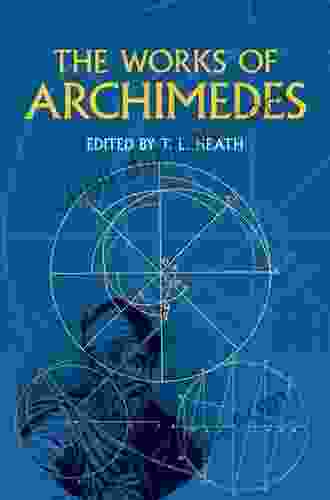
 Ruben Cox
Ruben CoxThe Works of Archimedes: A Monumental Legacy of...
In the annals of...

 Deacon Bell
Deacon BellThe Reaper: Killer Miller - A Spine-Tingling Western...
A Journey into the...
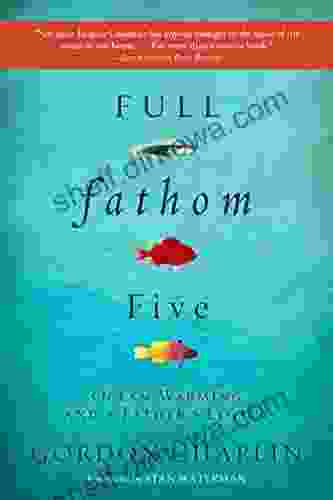
 Hugh Bell
Hugh BellOcean Warming and Father's Legacy: A Compelling Read for...
Dive into a Poignant Tale...
4.7 out of 5
| Language | : | English |
| File size | : | 56414 KB |
| Screen Reader | : | Supported |
| Print length | : | 496 pages |


